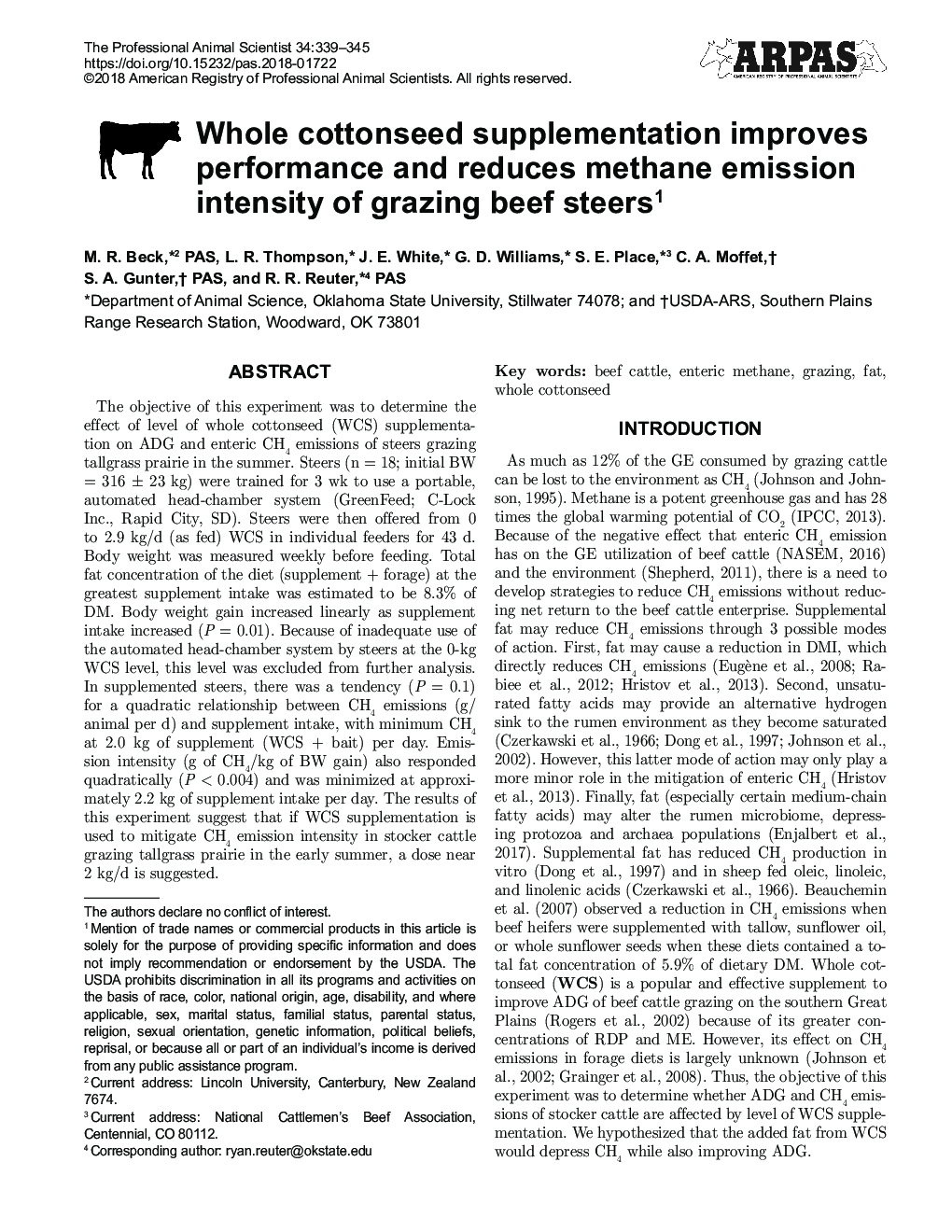| Article ID | Journal | Published Year | Pages | File Type |
|---|---|---|---|---|
| 8503656 | The Professional Animal Scientist | 2018 | 7 Pages |
Abstract
The objective of this experiment was to determine the effect of level of whole cottonseed (WCS) supplementation on ADG and enteric CH4 emissions of steers grazing tallgrass prairie in the summer. Steers (n = 18; initial BW = 316 ± 23 kg) were trained for 3 wk to use a portable, automated head-chamber system (GreenFeed; C-Lock Inc., Rapid City, SD). Steers were then offered from 0 to 2.9 kg/d (as fed) WCS in individual feeders for 43 d. Body weight was measured weekly before feeding. Total fat concentration of the diet (supplement + forage) at the greatest supplement intake was estimated to be 8.3% of DM. Body weight gain increased linearly as supplement intake increased (P = 0.01). Because of inadequate use of the automated head-chamber system by steers at the 0-kg WCS level, this level was excluded from further analysis. In supplemented steers, there was a tendency (P = 0.1) for a quadratic relationship between CH4 emissions (g/animal per d) and supplement intake, with minimum CH4 at 2.0 kg of supplement (WCS + bait) per day. Emission intensity (g of CH4/kg of BW gain) also responded quadratically (P < 0.004) and was minimized at approximately 2.2 kg of supplement intake per day. The results of this experiment suggest that if WCS supplementation is used to mitigate CH4 emission intensity in stocker cattle grazing tallgrass prairie in the early summer, a dose near 2 kg/d is suggested.
Related Topics
Life Sciences
Agricultural and Biological Sciences
Animal Science and Zoology
Authors
M.R. PAS, L.R. Thompson, J.E. White, G.D. Williams, S.E. Place, C.A. Moffet, S.A. PAS, R.R. PAS,
